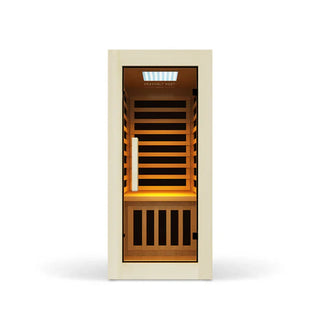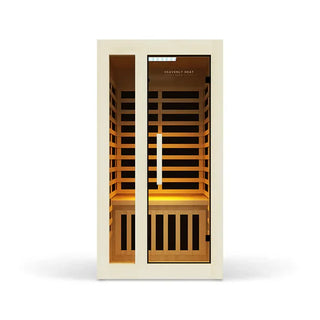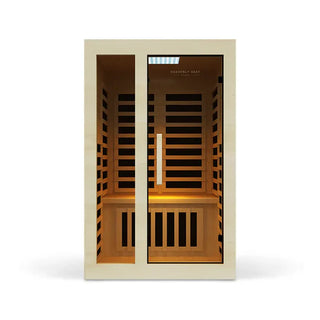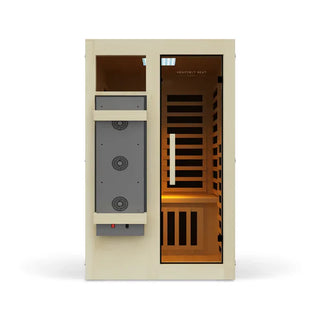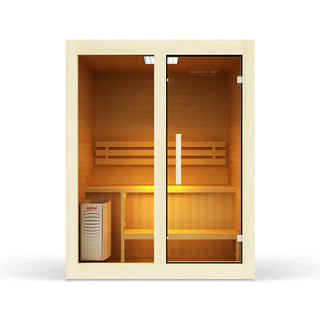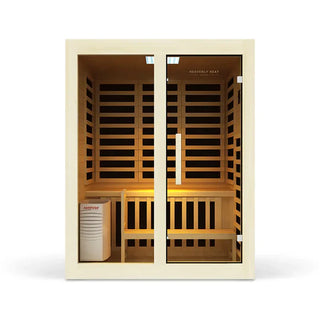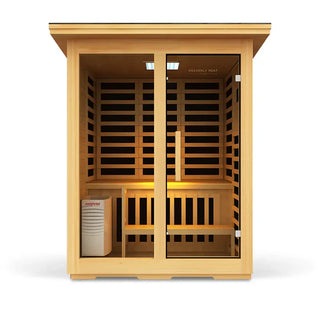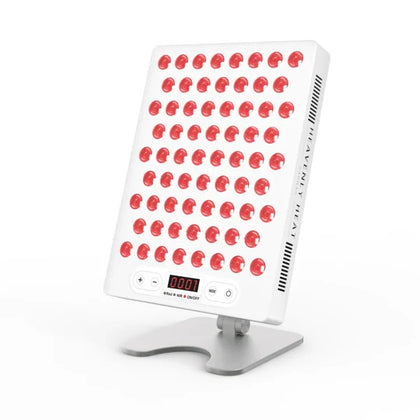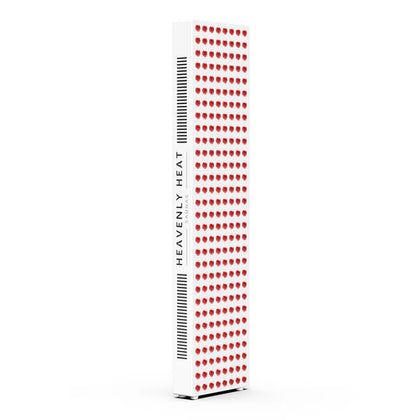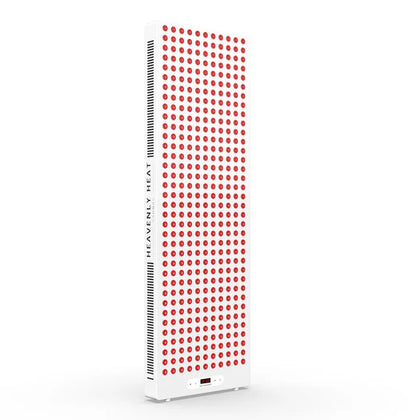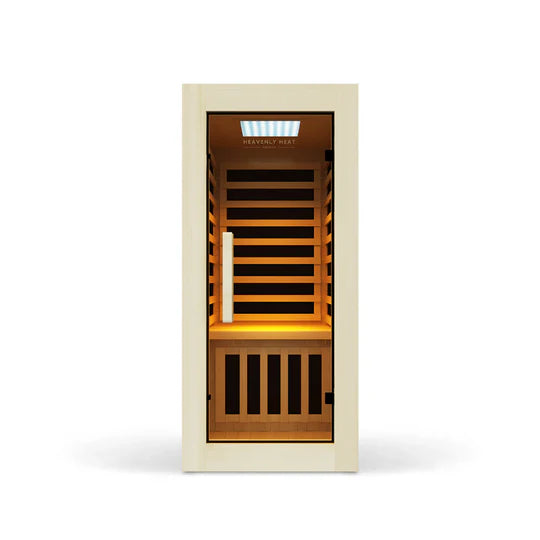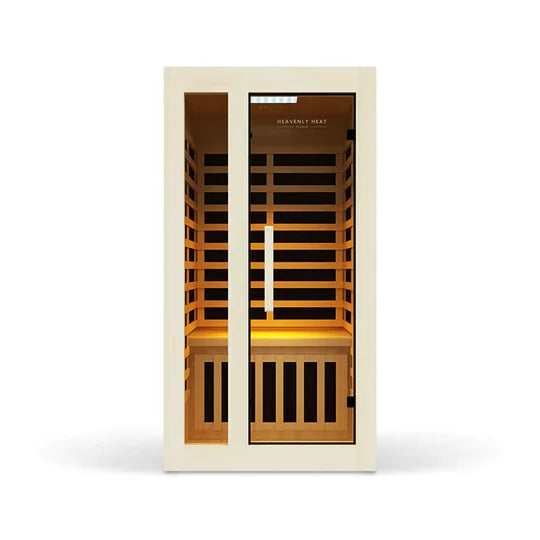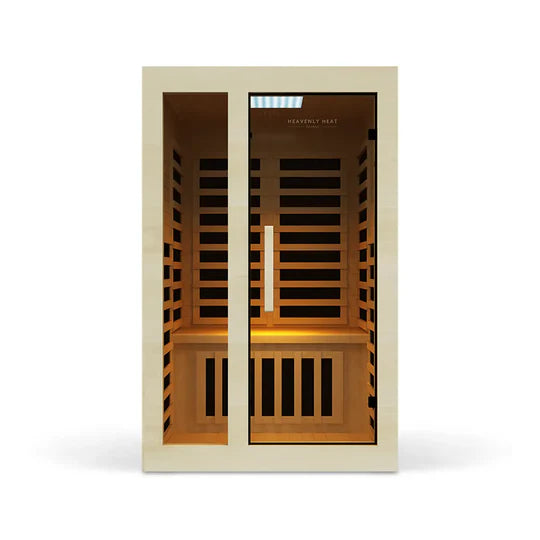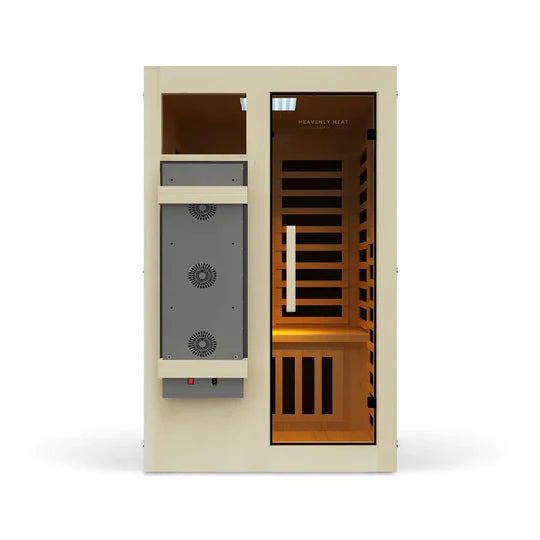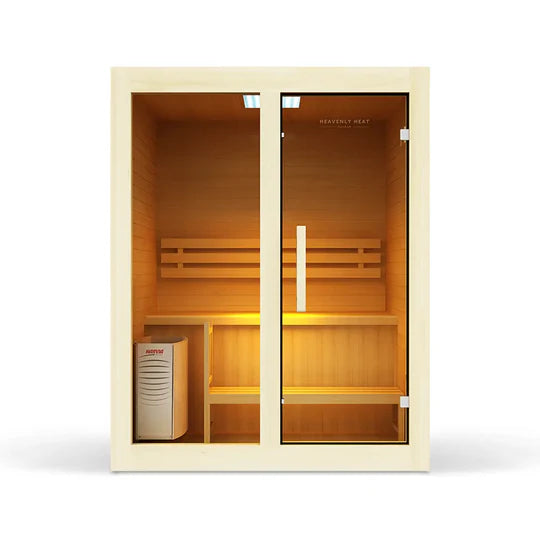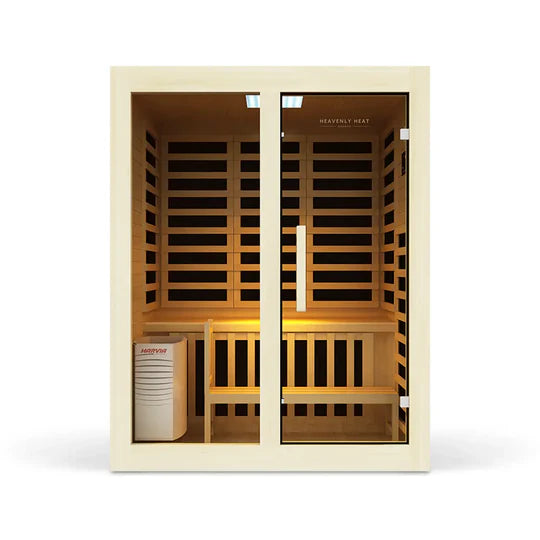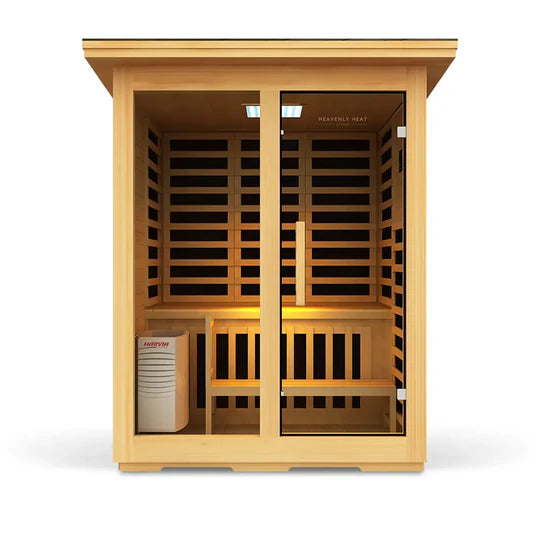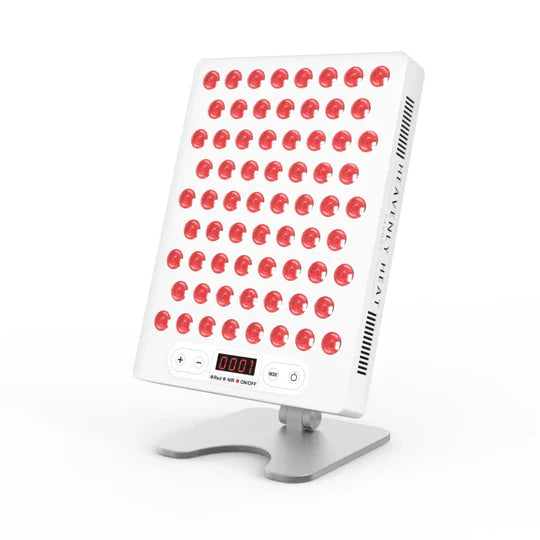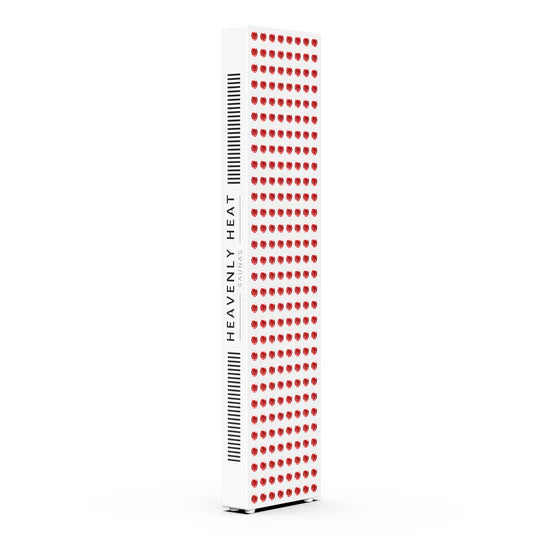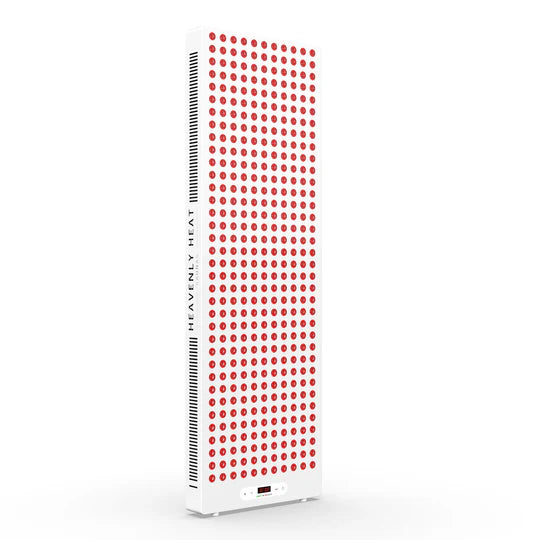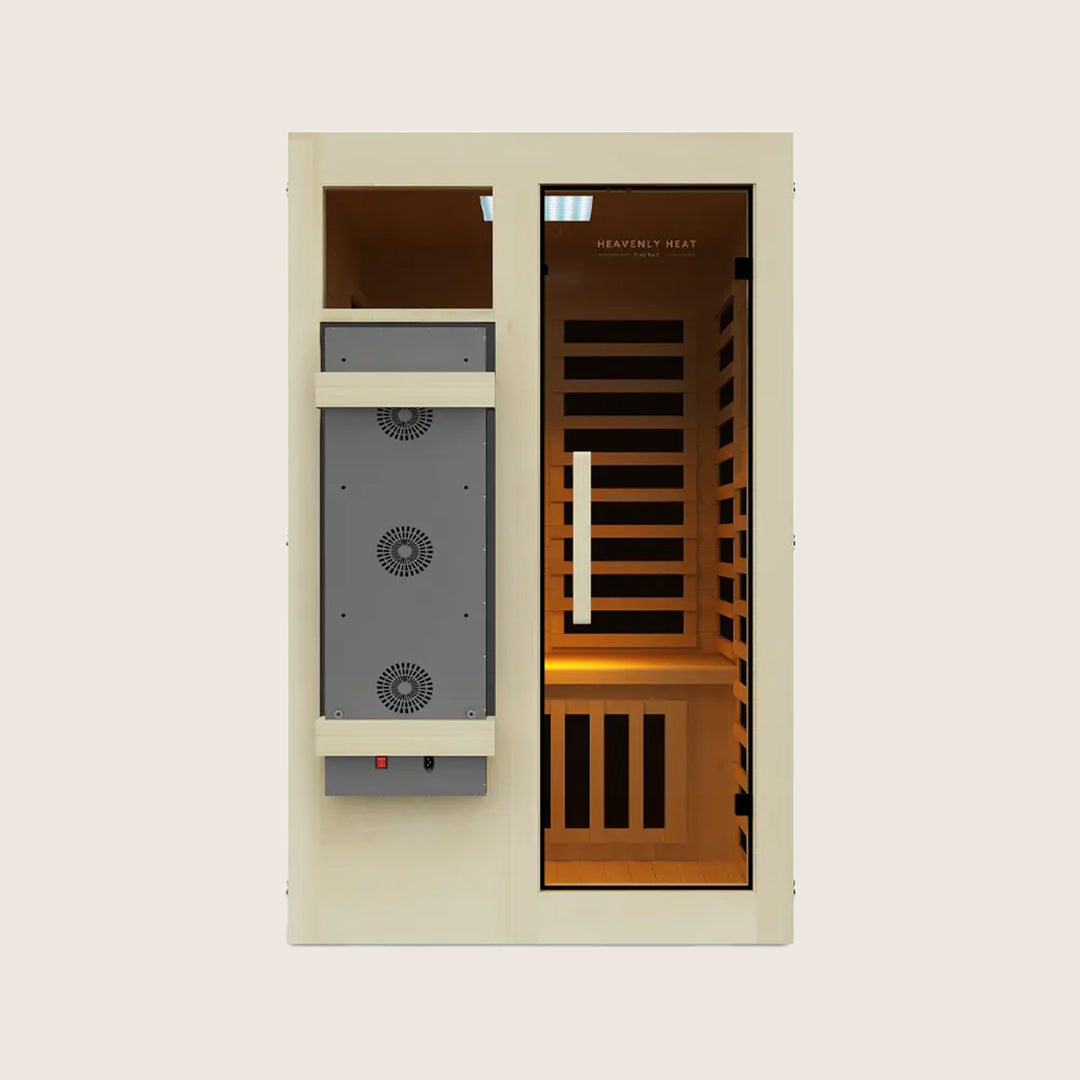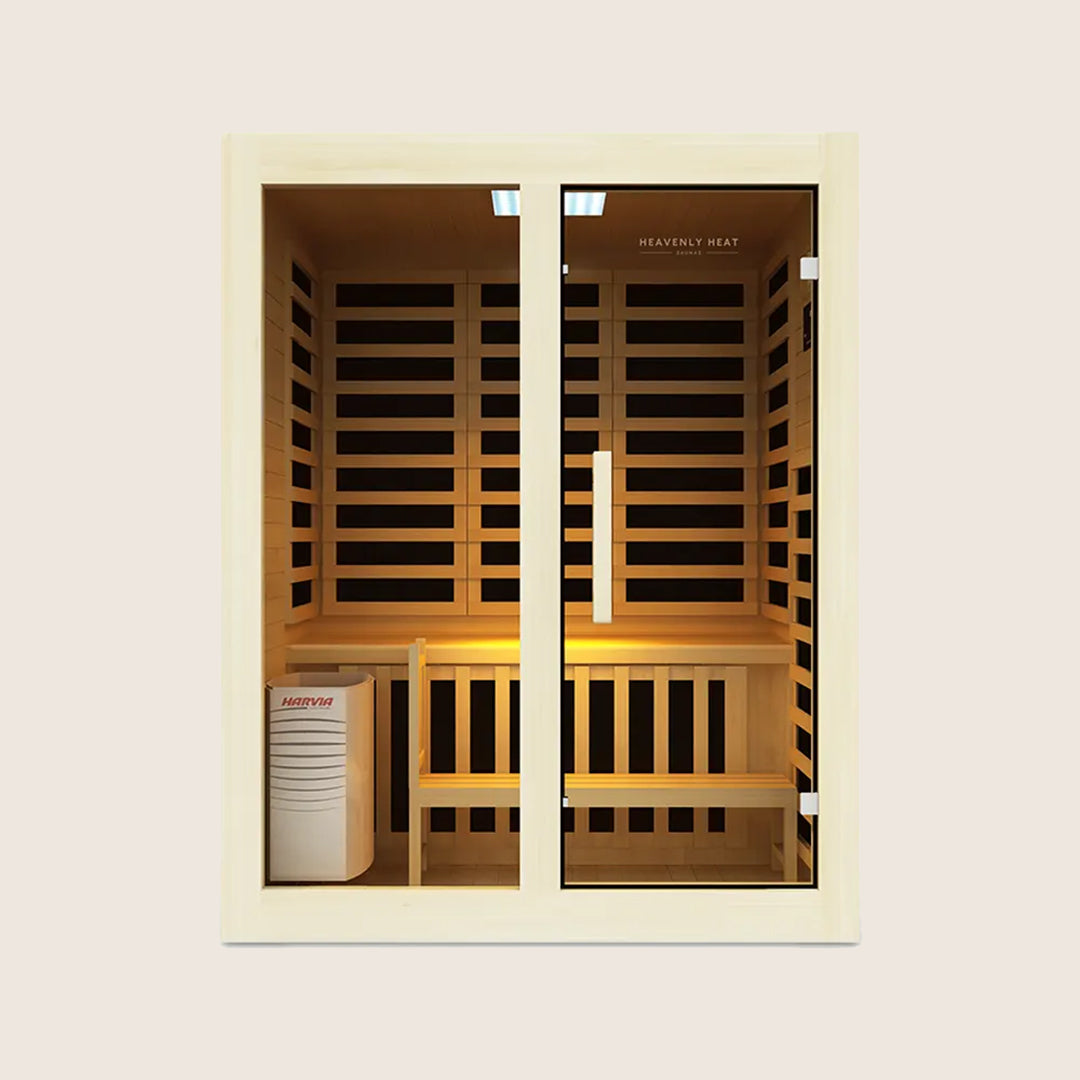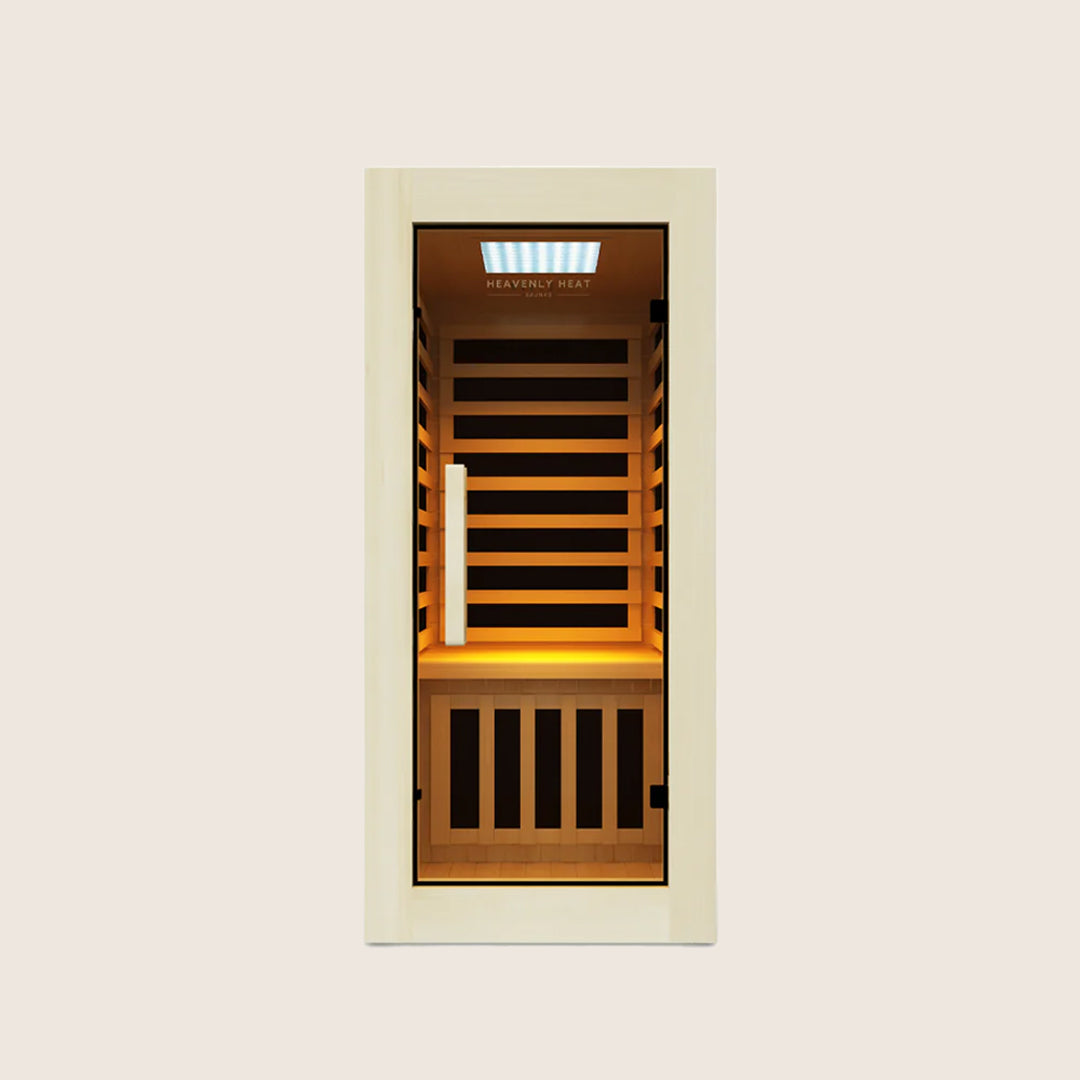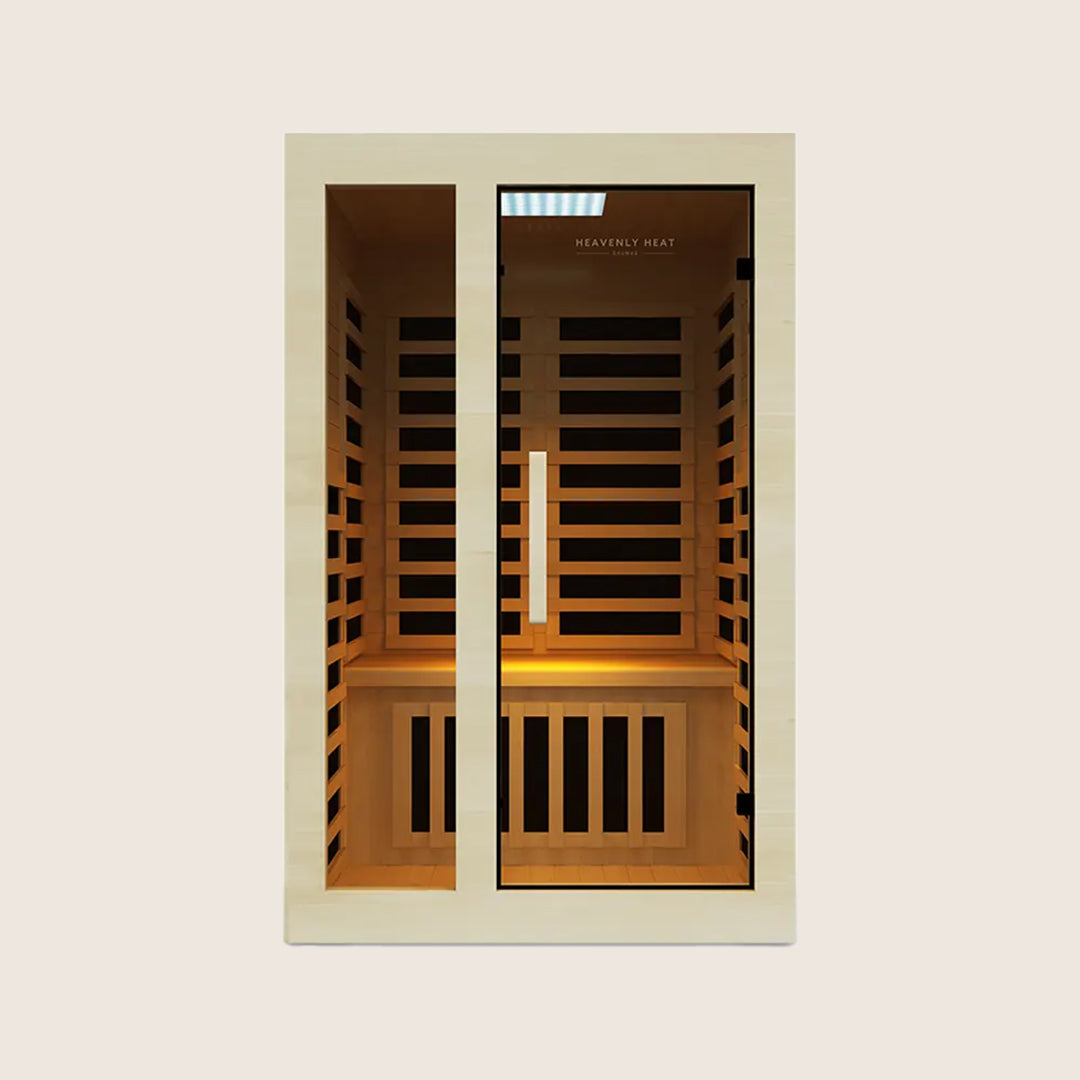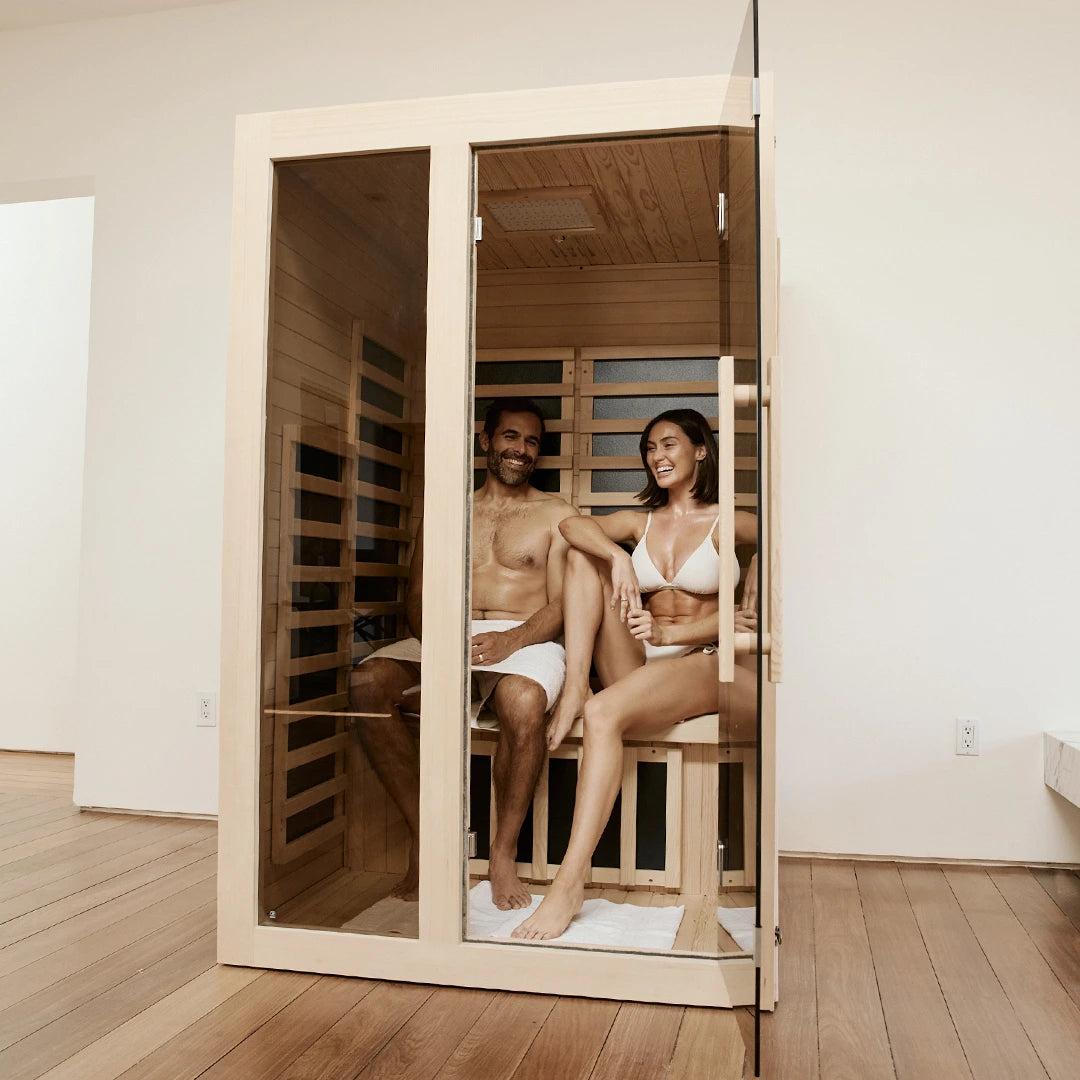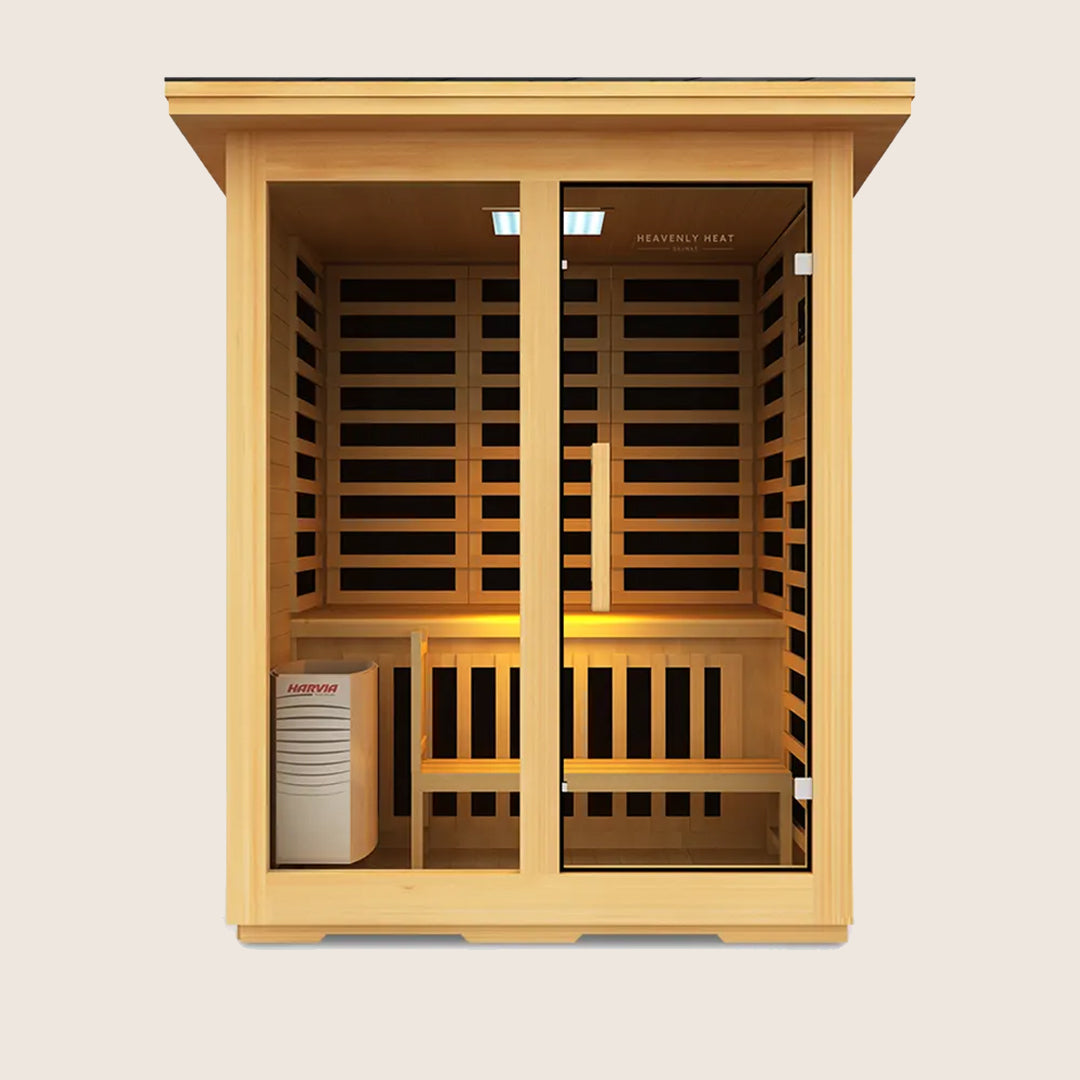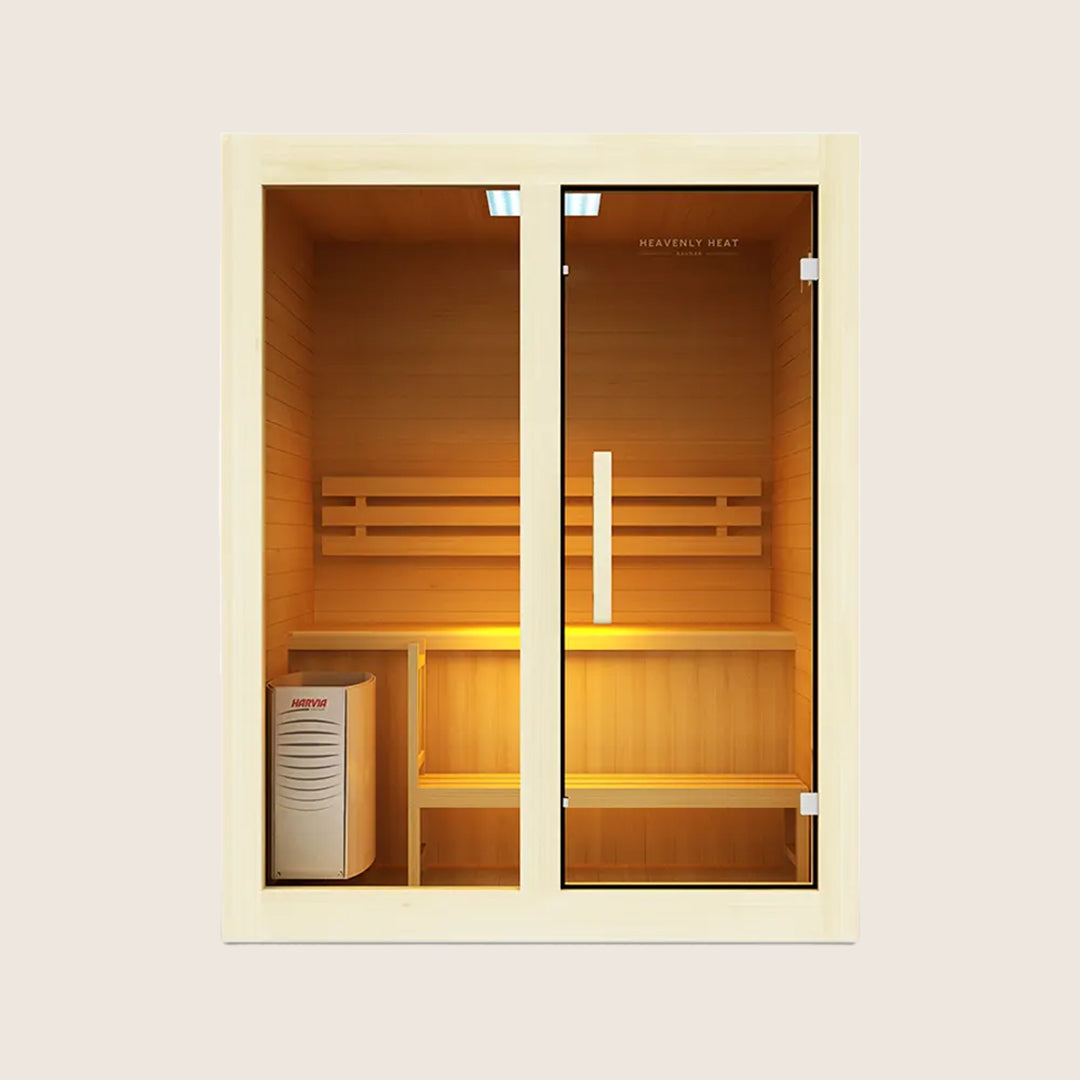Sauna When Sick: Exploring Safety, Benefits, and Effects on Cold and Flu Symptoms
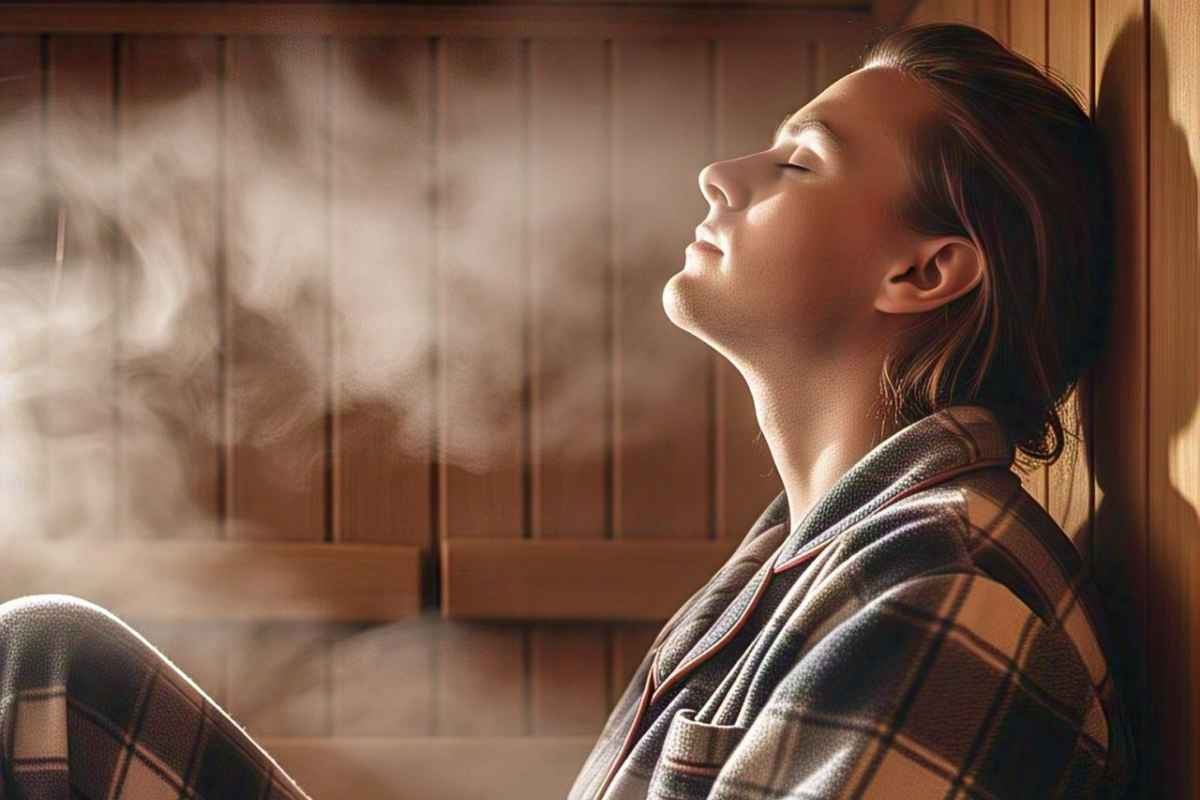
Table of contents
Feeling under the weather and wondering if a sauna could help? While the heat might seem like a quick fix, it could worsen symptoms like dehydration, fatigue, and congestion.
If you’re already battling a fever, respiratory issues, or dizziness, a sauna might not be the best choice.
However, with the right precautions, saunas can offer benefits. Let’s dive into how to use them safely while sick.

Key Takeaways
Avoid Saunas with a Fever: Heat can make fever symptoms worse and increase dehydration risks.
Infrared Saunas Are Gentler: They operate at lower temperatures, making them a better option if you choose to use a sauna while sick.
Breathing Can Improve or Worsen: Sauna heat may open airways for some but can worsen congestion for others, especially with respiratory infections.
Hydration is Crucial: Sauna use can cause dehydration, which can make illness symptoms worse. Drink plenty of water before and after.
Short Sessions Only: If using a sauna while sick, limit sessions to 10–15 minutes to avoid excessive sweating and fatigue.
- Listen to Your Body: If you feel dizzy, weak, or uncomfortable, it’s best to skip the sauna and focus on rest instead.

Is It Safe to Use a Sauna When You’re Sick?
- Fever Makes Sauna Unsafe: If you have a fever, the sauna’s heat can make it worse, so avoid using it.
- Feeling Weak or Dizzy Means No Sauna: If you’re weak, lightheaded, or very tired, it’s better not to use the sauna.
- Drink Water to Avoid Getting Dehydrated: Make sure to drink enough water before and after sauna time to stay hydrated.
- Leave the Sauna When You Feel Uncomfortable: Pay attention to your body, if you feel uneasy, it’s best to get out.
- Trust Your Body When It Says No: It’s tempting to think heat will help you “sweat it out,” but when your body signals discomfort, listen and take a break.
Infrared vs. Traditional Sauna: Which is Better When Sick?
- Infrared saunas feel more comfortable when you’re sick: Infrared saunas use lower heat, which can be easier on your body when you’re not feeling well.
- Traditional saunas create stronger heat that makes you sweat more: The intense heat of traditional saunas helps you sweat a lot, which some find helpful but can be tough when sick.
- Using an infrared sauna helped ease cold symptoms and relax: David Maus Jr. found that infrared sauna heat helped clear his congestion and made him feel more relaxed.
- Sweating in a sauna means you need to drink plenty of water: Heavy sweating can cause dehydration, so it’s important to keep drinking fluids while using a sauna.
- Avoid saunas if you have a fever or feel very weak: If your body feels weak, nauseous, or you have a fever, it’s safer to skip the sauna until you feel better.
- It’s important to listen to your body when using saunas while sick: Sauna benefits depend on how you feel; always adjust your use based on your own health and comfort.
How Saunas Affect Breathing and Lung Health
Sauna heat can help open airways and loosen mucus, making it easier to breathe for some people.
However, for others, especially those with asthma or respiratory infections, the heat might worsen congestion.
If you find that sauna sessions make your breathing more difficult, it’s best to avoid them until you feel better.
Can a Sauna Make You Dehydrated?
Sauna sessions cause sweating, which can lead to dehydration if you don’t drink enough water.
If you're already sick, dehydration can make symptoms worse . To stay hydrated, drink plenty of water before and after your sauna session.
If you’ve been experiencing vomiting or diarrhea, it's best to skip the sauna until you’ve fully recovered .

How Long Should You Stay in a Sauna When Unwell?
If you decide to use a sauna while sick, keep your session short, no more than 10 to 15 minutes.
Long sessions can lead to excessive sweating, which may worsen dehydration and fatigue. Pay attention to how you feel, and step out if you start feeling weak or uncomfortable.
Signs You Should Avoid the Sauna When Sick
High Fever and Severe Illness
- High fever means your body is already overheating: High fever signals that your body is struggling to control its temperature, and using a sauna can make this worse.
- Your body works hard to keep temperature steady: The nervous system carefully controls your core body temperature to keep everything working normally.
- Too much heat can cause dangerous effects like dizziness and nausea: When your body can’t keep up with extra heat, you risk heat stroke and feeling very sick.
- Being sick makes it harder for your body to handle more heat: If you have an infection, extra heat stress from a sauna can slow down your healing and make symptoms worse.
- Rest and drink water instead of using the sauna when sick: It’s better to let your fever go down naturally by resting and staying hydrated than to expose yourself to sauna heat.
Respiratory Infections and Congestion
Sauna heat may open airways – Helps loosen mucus, making breathing easier for some.
Dry heat can worsen congestion – May irritate the respiratory tract, making it harder to breathe.
Not suitable for severe congestion – If symptoms worsen, sauna use should be avoided.
Dizziness and Dehydration Risks
Sauna use can lead to dehydration , especially if you're already sick and losing fluids. Dehydration increases the risk of dizziness and fainting , so it’s important to drink enough water before and after your session. If you feel lightheaded or dizzy, leave the sauna immediately .
Weakened Immune System and Recovery Delay
When you're sick, your immune system is already working to fight off the illness. Sauna use can put extra stress on your body, which might slow down recovery. If you're feeling weak, it's best to rest instead of using a sauna.
Gastrointestinal Issues and Nausea
If you’re feeling nauseous, sauna heat may make it worse. The high temperature can also worsen symptoms for those with acid reflux or other digestive issues.
If you have diarrhea or stomach flu, sauna use is not recommended , as it may increase dehydration and discomfort .
Medication Side Effects and Heat Sensitivity
- Some Medications Make You More Sensitive to Heat: Certain medicines can increase your risk of feeling dizzy, dehydrated, or overheated in a sauna.
- Common Medicines Can Stop Your Body From Cooling Down Properly: For example, a systematic review and meta-analysis found that Drugs like anticholinergics, beta-blockers, adrenaline, and Parkinson’s treatments can make it harder for your body to sweat and cool off.
- These Medicines Can Cause Your Body Temperature to Rise Too Much: Because sweating and heat release are reduced, these medicines can make your core temperature go up in hot places.
- People Taking These Medicines Should Avoid Too Much Heat: If you take these medicines, heat like that in a sauna can make symptoms worse and may cause dangerous overheating.
Chronic Conditions That Worsen with Heat
If you have asthma, heart disease, or high blood pressure, saunas may not be safe when you're sick.
Heat exposure can trigger asthma symptoms or put extra strain on the heart. If you have a chronic condition, consult your doctor before using a sauna.
What Research Says About Saunas and Illness Recovery
- Saunas help your blood flow and make you feel relaxed: Using a sauna raises your heart rate and improves blood circulation , which can reduce joint pain and help you relax. " says Dr. Brad Weening , a board-certified physician specializing in musculoskeletal health.
- Better blood flow helps your body fight illness: When your blood moves better, your body can deliver oxygen and nutrients faster, which supports your immune system during colds or flu.
- Regular sauna use can make your immune system stronger: Some studies show that using a sauna often might help you get better faster and feel less sick by boosting your immune defenses.
- Don’t use saunas too much if you’re very sick: If you’re feeling weak or dehydrated, a sauna could make things worse, so it’s important to take it easy and listen to your body.
FAQs
Can a sauna help with muscle aches or joint pain while I'm sick?
A sauna can ease muscle aches and joint pain when you're sick. The heat relaxes tight muscles, reduces soreness, and loosens stiff joints. Infrared saunas penetrate deeper, aiding muscle recovery. Increased blood circulation delivers oxygen to sore areas, speeding healing. Sauna sessions also help combat post-viral fatigue by improving relaxation and energy levels.
Is it safe to use a sauna if I’m dealing with a sinus infection or allergies?
Using a sauna with a sinus infection or allergies can help or worsen symptoms. Heat and steam open nasal passages but may also dry mucus and cause irritation. Steam saunas are usually better for sinus infections, as moisture loosens mucus. Those with allergies should be cautious, as hot air can sometimes worsen symptoms. Listen to your body.
Are there any alternative methods to benefit from heat therapy while sick, without using a sauna?
If you’re sick and can’t use a sauna, try other heat therapy options at home. A warm bath relaxes muscles, eases aches, and opens airways. A hot shower’s steam clears congestion and soothes the throat. A steam inhaler delivers targeted moisture to the sinuses for easier breathing. A humidifier prevents dryness and irritation. An electric blanket provides steady warmth for comfort and recovery. Stay warm and recover faster.
Can sauna use help boost my immune system if I’m mildly sick?
Saunas can boost immune function by raising body temperature, helping fight infections. Sweating may flush out toxins and clear congestion, easing mild cold symptoms like a stuffy nose and body aches. However, if you have a fever or feel weak, rest is better. While not a cure, saunas may support faster recovery through improved circulation and relaxation.


